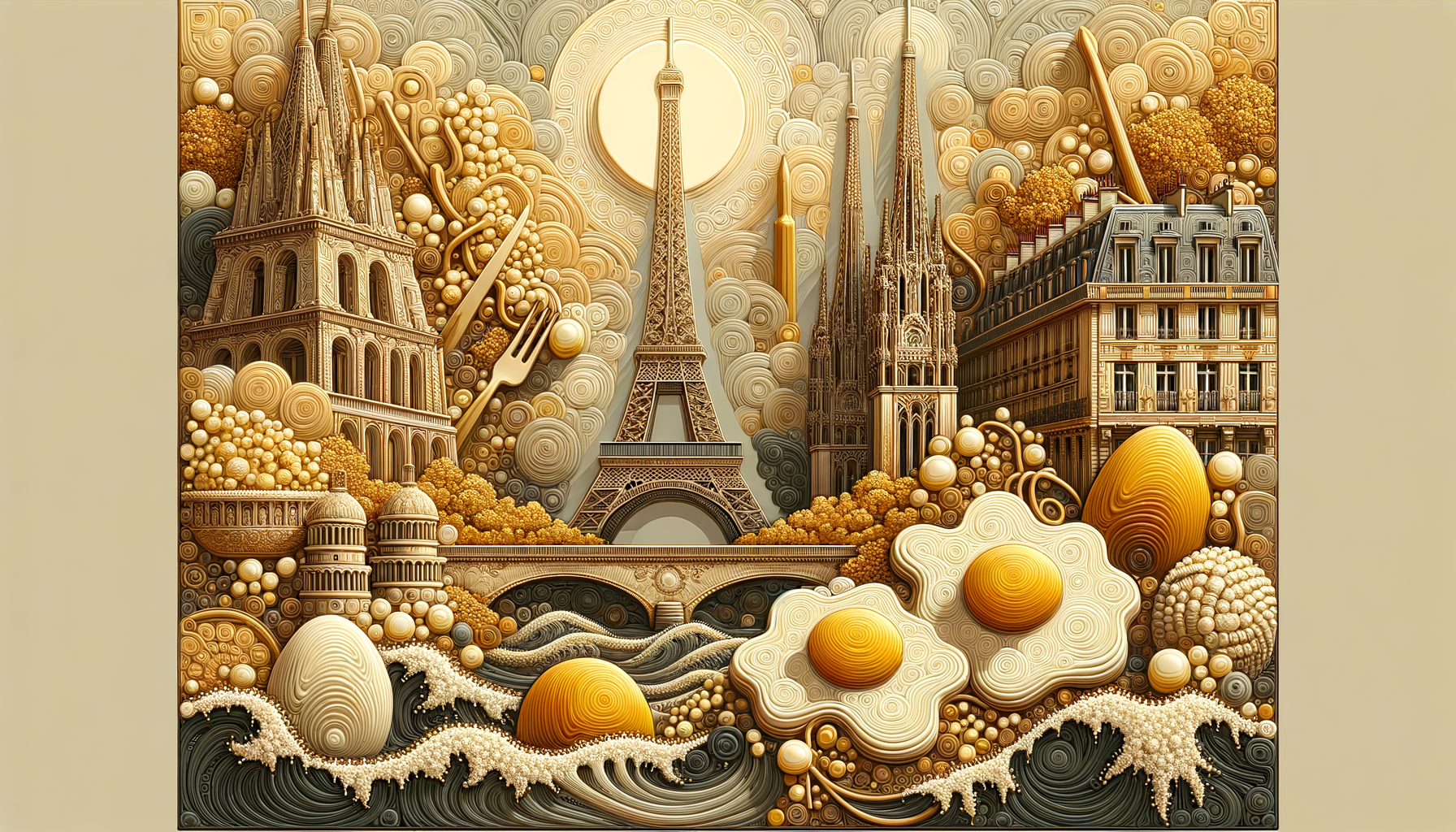It Was (Not) a Date to Die For
Paris, Pasta, and a Side of Panic
It started out like the quintessential Parisian romance fantasy. The kind of story you’d tell at a dinner party, complete with gestures and a dramatic pause for effect. I was twenty-one, freshly in love—or maybe infatuation—with a philosophy student named Étienne. He had big ideas about everything: art, existence, and why macarons are "merely bourgeois propaganda." To me, he was charmingly insufferable. His floppy hair, his collection of turtlenecks—he could have walked straight out of a Godard movie.
Étienne decided that what would truly impress me (as though the nightly existential debates weren’t enough) was cooking me a classic Italian carbonara from scratch. Not just any carbonara—Étienne sneered at cream sauces the way Berthillon despises bad ice cream. No, it had to be "authentic." Eggs, pecorino, guanciale, pasta water. Nothing more.
“Cooking,” he declared, “is like love. Simple, with no shortcuts.”
Reader, let me spare you some suspense: complications were ahead.
Disaster Takes Center Stage
The night began innocently enough. Étienne's tiny Montmartre apartment smelled like garlic and ambition. He poured me overpriced Chianti and gestured dramatically as he grated pecorino like a conductor guiding his orchestra.
Then... disaster quietly crept into the room, wearing the scent of singed guanciale.
Étienne, in a move of stubborn self-confidence, decided he didn’t need a recipe. If Julia Child had been there, she might have thrown her A La Recherche du Temps Perdu cookbook straight at his head. He aggressively multitasked, whisking eggs while arguing about Nietzsche, entirely oblivious to the fact that he’d set the stove burner way too high.
Within minutes, the guanciale cubes turned from chewy golden perfection to what resembled tiny charcoal bricks. Smoke joined the ambiance, wafting through the air like a moody cigarette in an indie film. Étienne remained undeterred. Was he not a philosopher, impervious to such trivialities? Surely, love would prevail over burned pork.
Except—remember those eggs? Étienne poured them into the boiling-hot pasta without tempering them. What emerged wasn’t silky strands of carbonara-coated spaghetti but clumps of scrambled eggs clinging desperately to limp linguine.
The final product—this Frankenstein dish—looked like something you’d feed to a student protesting tuition hikes. Étienne served it anyway. “Taste is subjective!” he announced, as if existential dread could mend coagulated pasta.
I shouldn’t have eaten it. But, well... I was raised in the kind of Egyptian household where you did not reject food. You smiled, said, "Tayyib, delicious," and prayed for digestive mercy.
Lessons in Chemistry (or Lack Thereof)
The misadventure didn’t end with the pasta. Somewhere between attempting to salvage good humor and fighting back tears of laughter over Étienne’s utter helplessness, it hit me: I didn’t actually feel anything for this man.
Sure, Étienne was charming in the abstract. But the grand romantic gestures—the half-burned pasta, the philosophical monologues, the bohemian chaos they brought with them—were just that: gestures. They didn’t move me. If anything, they highlighted that Étienne and I were two incompatible ingredients in the awkward dish of young romance. What he saw as passion felt to me like performative fervor.
Here’s the thing about love: when it’s real, it doesn’t need to be a scene. Sometimes, it's in the small, laughable moments—like an actual edible dinner, shared, without the fire alarm screaming in the background.
The Recipe for Connection
Looking back on that misadventure, I think Étienne taught me one of the most profound lessons about love. Not in the grand, sweeping way philosophers claim it’s supposed to be, but in the messy, trial-and-error way of figuring things out as humans.
Here’s what I learned:
-
Authenticity Beats Glossy Gestures: Romance isn’t a spectacle—it’s the everyday actions that demonstrate care. I didn’t need Étienne to recreate a Roman trattoria; I’d have been happier if he’d just ordered pizza and made me laugh. Love thrives on sincerity, not showmanship.
-
Shared Values Matter: If someone can quote Rousseau on why guanciale should be fried a specific way but can’t listen when you tell them about your day, it’s not going to work. Relationships need shared perspectives—and more importantly, shared listening.
-
Laugh, Even When It’s a Disaster: Honestly, the moment Étienne’s carbonara turned into scrambled-egg soup is now one of my favorite comedy sketches about my twenties. Flirting with disaster (and bad cooks) is inevitable, but being able to laugh at it? That’s what makes the memories worthwhile.
-
Comfort Over Chemistry: While fiery passion gets all the limelight, I’ve realized I value compatibility and kindness so much more. Éclairs may be indulgent, but at the end of the day, I want the comforting steadiness of bread and butter.
From Burnt Pasta to Clearer Vision
So, did Étienne and I survive the culinary catastrophe that was "carbonara night"? No. Our relationship ended shortly afterward, though it wasn’t dramatic. We shared an awkward hug outside a café, and then we were just... two people who once tried and failed to connect over overpriced cheese.
But here’s the good part: when I think back on that evening, I don’t feel embarrassment or regret. I feel gratitude—for the lesson, for the laughter, and even for the carbonara apocalypse.
Though it wasn’t the love story I imagined when I first fell for Étienne’s big, floppy-haired swagger, it was mine. It taught me how not to settle for anything less than a love simmered slowly, generously, and sincerely.
So if you find yourself faced with a romantic misadventure—a burnt dinner or a mismatch of dreams, don’t turn away. Sometimes, the recipe for clarity involves a bit of smoke and a dash of chaos.
End your evening with laughter, learn all you can, and remember: there are always better meals (and brighter loves) ahead.
Because love, just like the perfect pasta, takes care, not complicity. And definitely, a good recipe.




















